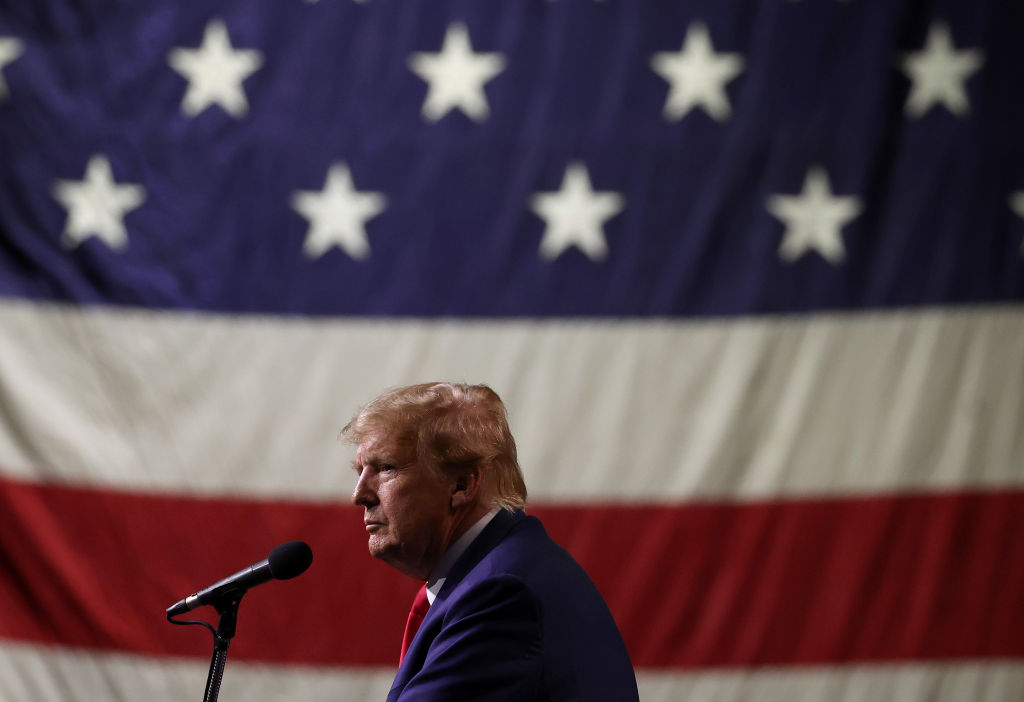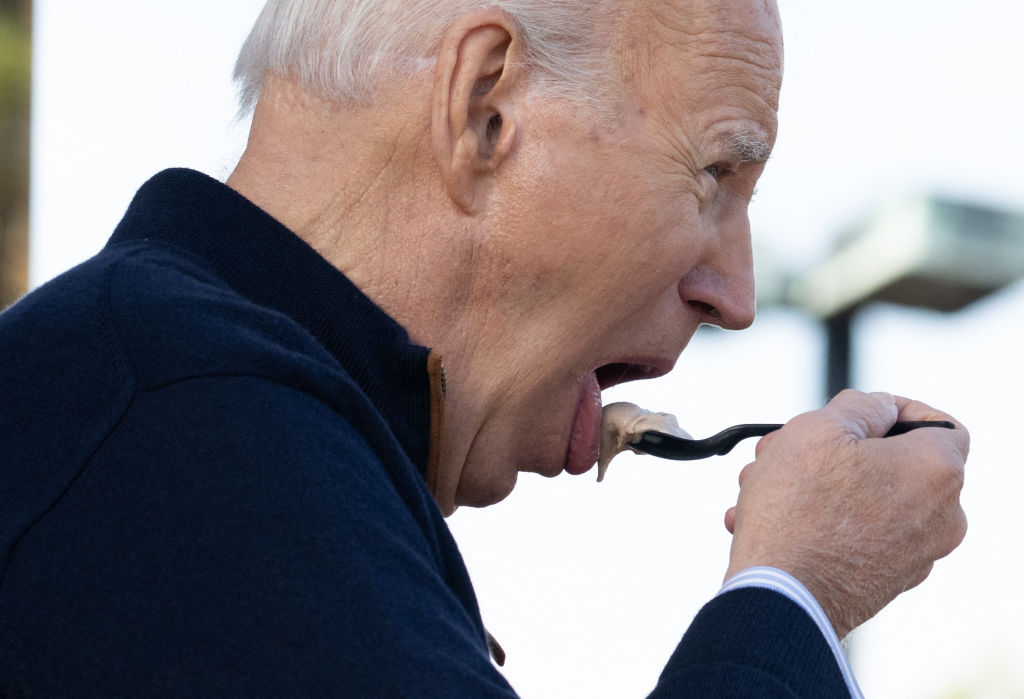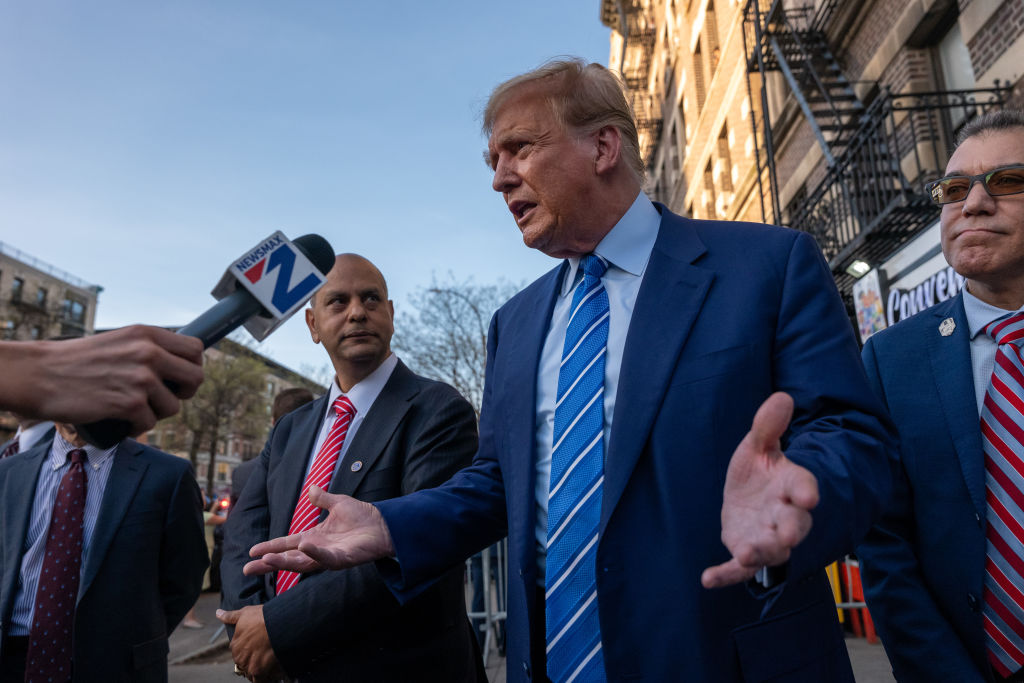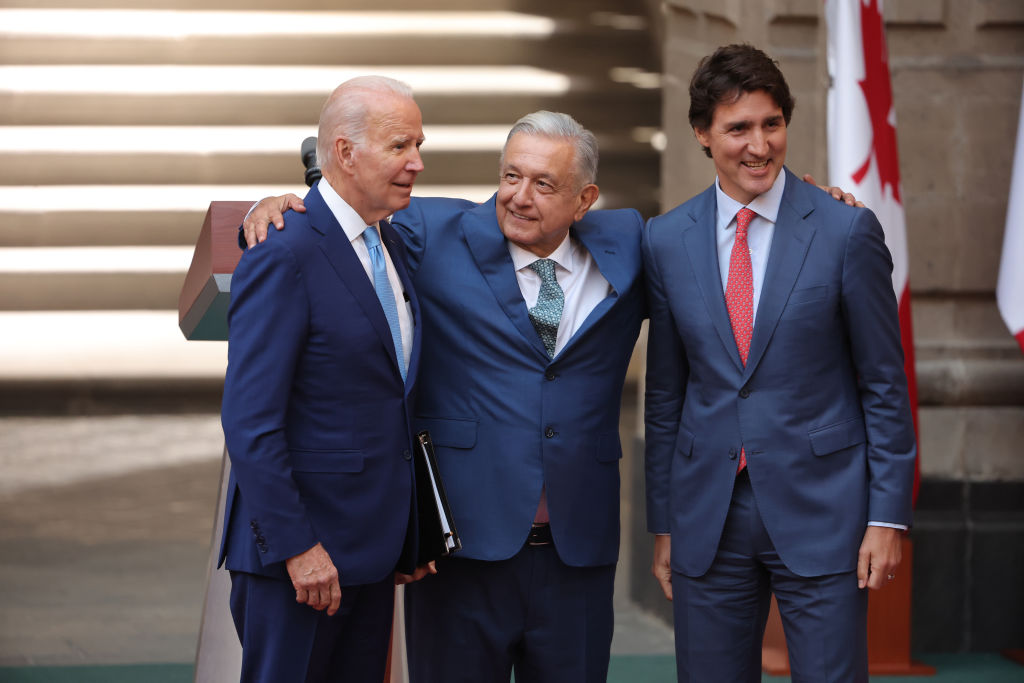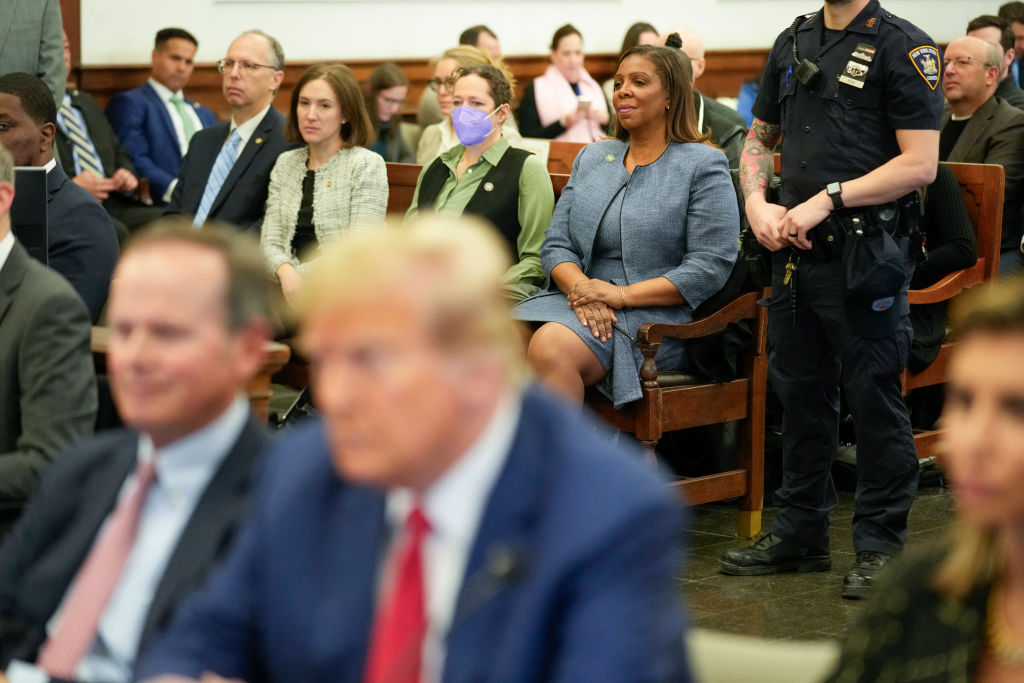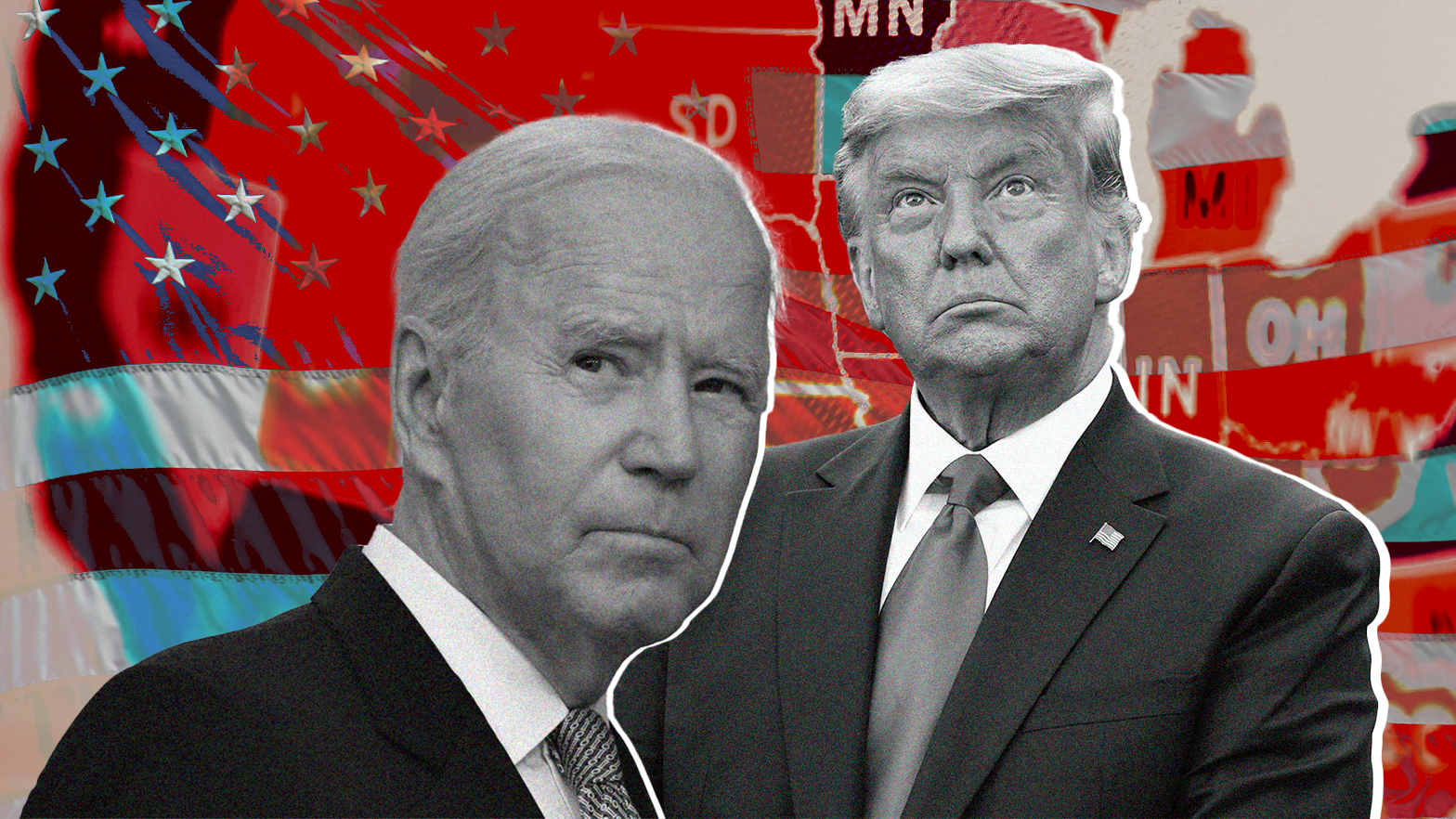Voters, not private litigants, should get to decide if Trump is re-elected in 2024.
No Antidote to Globalist Chaos
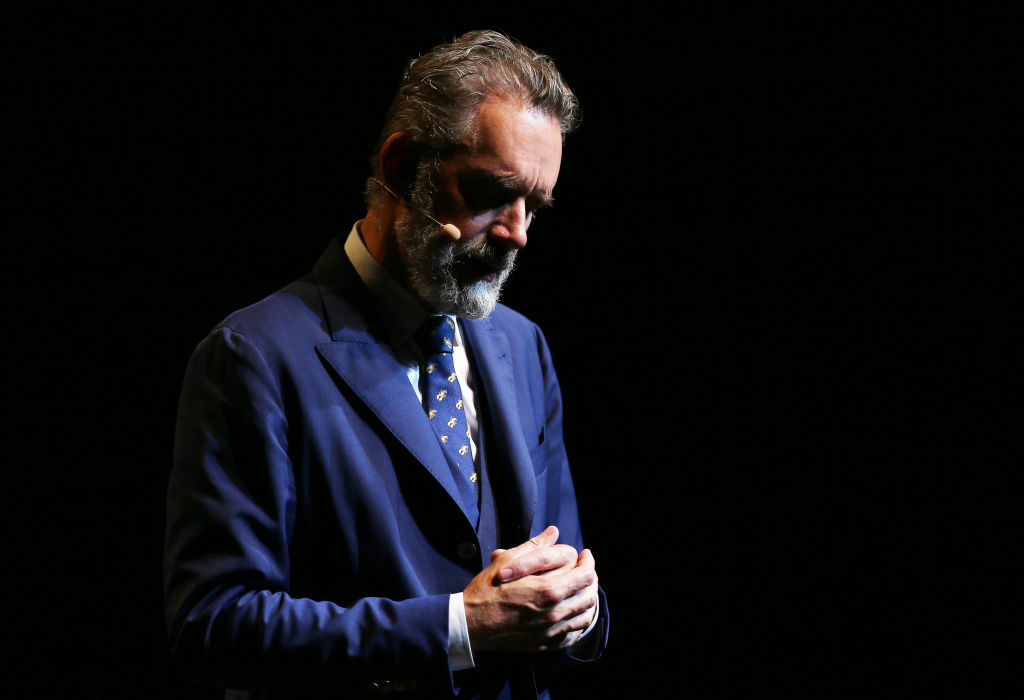
Jordan Peterson’s proposal for a counter-WEF is not the way.
Recently, during a three-hour long discussion with Joe Rogan, Jordan Peterson discussed the World Economic Forum (WEF) and his plan to defeat the unelected globalists in Davos. Later this year, in either October or November, Peterson, who is currently being “reeducated” for being naughty on Twitter, will meet with a group of influential thinkers in London. This gathering, he assured millions of listeners worldwide, will offer “an alternative vision of the future, an alternative to that apocalyptic narrative” put forward by organizations like the WEF. The vision will be fundamentally “pro-human,” anti-utopian, and “multi-dimensional,” balancing the needs of “human well-being” with those of our environment, as much as that is possible. “None of the people involved in this consortium so far are very thrilled with global-corporate-fascist-government-media collusion,” he added. If the first conference, an invite-only affair, goes well, Peterson intends to make it an annual event.
A revolutionary concept, some may say. In truth, it’s not. After all, we already have the World Social Forum (WSF), an annual meeting of various organizations rallying against globalization. The WSF, heavy on discussions and debates, sees activists work toward the construction of a better world. “Another world is possible!” we’re promised, although the WSF seems no closer to leading us to that promised land than it was when it was founded in 2001. Up until 2015, we also had the Public Eye on Davos, a counter-event to the annual WEF meeting. The project involved NGOs convening to tackle the problem of corporate greed and rapid globalization. If you haven’t heard of either the WSF or Public Eye on Davos, you can be excused. In truth, both have proven to be about as effective as a sunroof on a submarine.
Which brings us back to Peterson, a man who preaches about order and control, yet is forever shedding tears over something. Is he the right man to lead the anti-globalist charge? A formidable public intellectual, Peterson has in recent times veered down on an odd path, one which could be labeled “unintentional self-parody.” It’s not just the strange attire: his behavior and messages have become oddly erratic. But the question of whether Peterson is the right man to challenge Davos is, in many ways, pointless.
We need more than stern words and intellectual onanism to defeat the bad guys in the eastern Alps. The threat posed by the WEF is real. The Great Reset is already in motion. Very soon, it seems, you will own nothing, not even your brain. At the most recent annual meeting in Davos, which took place last month, attendees were told that humanity is entering a time when brain hacking will reign supreme. Just a few years ago, the sneaky transhumanist Yuval Noah Harari spoke at length about hacking the human brain. At the time, it all seemed a little farfetched. Not anymore: we are, it turns out, hackable meatsuits. At the annual meeting, Nicholas Thompson, The Atlantic’s CEO, chaired a session called “Ready for Brain Transparency?” The session opened with a Black Mirror-like video in which employees’ brainwaves were closely monitored, then quickly decoded. Not only was the information gathered used to evaluate their individual performances, it was also used to assess whether or not any of the employees had ever engaged in criminal behavior. Those viewing the video didn’t look bemused; if anything, they looked extremely amused.
After the video, Nita Farahany, a professor at Duke University, told the audience that the technology in the disturbing video already exists. In the chirpiest of tones, she assured everyone in attendance that omniscient organizations and government agencies already have the technology to detect and “decode faces that you’re seeing in your mind,” from “simple shapes” and “numbers” to “your PIN number” and “your bank account.”
The WEF is also busy pushing “climate migration,” the idea that hundreds of millions, if not billions, of people will flood the West as rising global temperatures cause large parts of the Third World to become completely uninhabitable. Increasingly, this feels like the how of the Great Reset: the means by which we will end up in that vastly transformed world, and much sooner than we’d like to think. This idea finds its most bonkers formulation in the WEF-approved book Nomad Century, by the aptly named Gaia Vince. According to Vince, because catastrophic climate change is now a done deal, we must allow all those billions of people who will be affected to migrate in advance to the West, so as to minimize suffering and loss of life when the crisis finally gets here—kind of like cutting of all your limbs so you never get gangrene. This, of course, will require a top-to-bottom transformation of the way we live, work, eat, and are governed, but this will be a good thing, since we’ll end up living in a fairer, more equitable global society, even if large parts of the globe are scorched beyond repair or underwater.
If we are to stop the WEF from becoming even more powerful in the increasingly narrow window of opportunity we have, and if Jordan Peterson is probably not the antidote to Davos-driven chaos, what are we to do?
Let’s look at what’s actually worked thus far. At present, the only (moderately) successful challenge to globalism has come by way of one nation under the leadership of one man: America under Donald Trump. Although some readers will shudder at the idea of another four years of Trump, it’s important to separate raw emotions from facts. While other countries, from Hungary to Russia, Iran, and China, have all thrown obstacles in the road toward global government, none have been quite so large, or caused quite such desperate maneuvers from the party of Davos, as those lobbed by Donald Trump during his four years as the 45th president of the United States.
That Trump’s presidency, for all its faults and failures, represented a mortal threat to globalism should be obvious from the insane all-or-nothing response of his opponents, at home, from both wings of the uniparty, the Deep State, and the mainstream media, and abroad. The Russia collusion hoax and the constant threat of scandal and impeachment were wielded from the moment of his election to prevent him from fulfilling as much of his America First mandate as possible. The dirty tricks have only continued since he left office—the sagas with the tax returns and the classified documents, for instance—because, so long as he can become president again, Trump and the Trump agenda still remain a mortal threat to globalism. MAGA was never just about America. It was, and still is, an anti-globalist slogan.
Despite the liberal claims that Trump would bring the world to nuclear annihilation, instead of waging war with Russia or attempting to invade or foment regime change in Iran, Trump avoided unnecessary foreign entanglements. He reminded America’s allies in NATO that they had obligations too, and that America would no longer subsidize their defense as it had in the past; in fact, it might even leave the alliance. Say what you want about Trump’s personality, but it was his winner’s confidence and willingness to take a risk that made détente with North Korea a genuine possibility after 70 years of simmering tension. Trump withdrew America from the Paris Climate Accords, because he knew they would, in his words, “punish the American people while enriching foreign polluters.” He did what he could to restore America’s trade deficit with China and bring manufacturing back to the U.S. from abroad. Although he came nowhere near halting illegal immigration, or even excessive legal migration, he did more than probably any president since Hart-Cellar to regain control over America’s borders.
This isn’t in any sense intended to be an encomium for Trump, who made bad decisions and failed in ways that are all too apparent. Instead, we’re simply pointing to the obvious fact that what he did manage to do was far more than the globalists could stand.
It’s not a wonder, then, that the priority of Joe Biden’s presidency has been to undo as much of the Trump legacy as possible. And so, in the last two years, we’ve seen a renewed emphasis on global interests over America’s own; the strengthening of supranational institutions including NATO; and attempts to weaken and, ultimately, destroy foreign opponents of globalism, including Russia and Iran. Globalism is back on course—because of regime change in America.
Whether American nationalism needs the support of other forms of nationalism to defeat the globalist threat is a moot point. Alexander Dugin, the Russian philosopher who has been portrayed as a kind of latter-day Rasputin figure, believes that America First nationalism must be part of a broader movement, a “Great Awakening” that alone can defeat globalism and the Great Reset. This Great Awakening, in Dugin’s scheme, is the emergence of worldwide opposition to the idea of a unipolar world. Although Trump’s America, Putin’s Russia, Xi Jinping’s China, and Iran and other parts of the Islamic world oppose globalism for different historical, cultural, and religious reasons, the fact of their opposition to it unites them. They are all brothers in arms; enemies of enemies are friends. While Dugin clearly sees the potential for cooperation among these nations, it’s as hard to picture the U.S. and Russia, even under a second Trump presidency, coordinating against the party of Davos, as it is to picture the U.S. working closely with China, or Iran and the Islamic world, to that end either.
In any case, the simple truth is, America already has a constituency of at least 73.6 million people who are broadly behind Trump’s America First policies. That’s 73.6 million people, in what remains the most important and most powerful nation on earth, who don’t need to be told that national interests should be an American president’s priority. These people don’t need to be educated on the evils of globalism by a university professor, or a whole convention of them. These tens of millions don’t need to be told that NATO expansionism is a threat to world stability; that climate change agreements like the Paris Accords threaten their livelihoods and way of life; or that mass immigration does the same. What these people need is to elect a leader who understands these things too and will do something about them, as only an American leader can. After the 2020 Election, that may be easier said than done, but Trump remains the most viable candidate.
Jordan Peterson is not likely to endorse Trump. Under pressure, the best Peterson could manage was to say that if he were an American he might—might—have voted for Trump as the lesser of two evils. Peterson generally refuses to endorse any form of group identity, for that way, in his vision, lies the Holodomor, the concentration camp, and the Gulag. And so instead he chooses to do more of what made him famous: to sit down and talk with like-minded people, in plush surroundings, usually in front of an audience. To Peterson, this may seem meaningful—and as we know, from his book 12 Rules for Life, we must pursue what is meaningful and not what is expedient—but to his critics, including us two, it will be anything but.
The American Mind presents a range of perspectives. Views are writers’ own and do not necessarily represent those of The Claremont Institute.
The American Mind is a publication of the Claremont Institute, a non-profit 501(c)(3) organization, dedicated to restoring the principles of the American Founding to their rightful, preeminent authority in our national life. Interested in supporting our work? Gifts to the Claremont Institute are tax-deductible.
They can bankrupt or jail their enemies, but that will never legitimate their corrupt regime.
Alvin Bragg’s indictment of Donald Trump abuses any definition of fraud.
Mexico’s president has America hooked on what he’s selling.
The normalization of election tampering has perverted American politics.
Pocketbook concerns override racial resentment in the current political climate.

